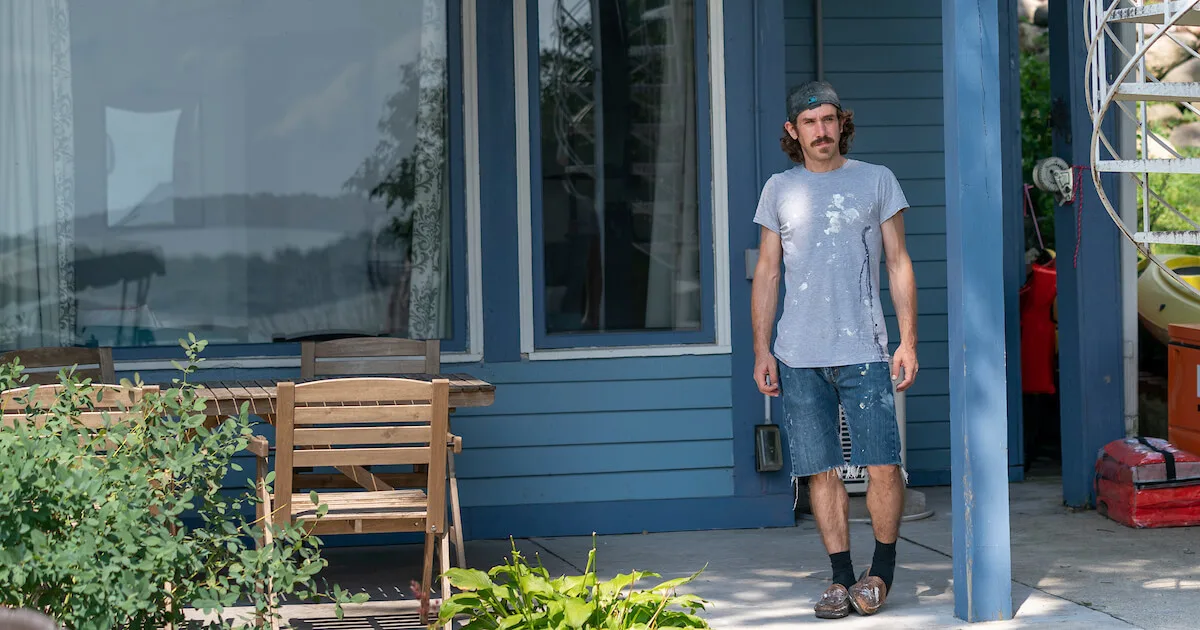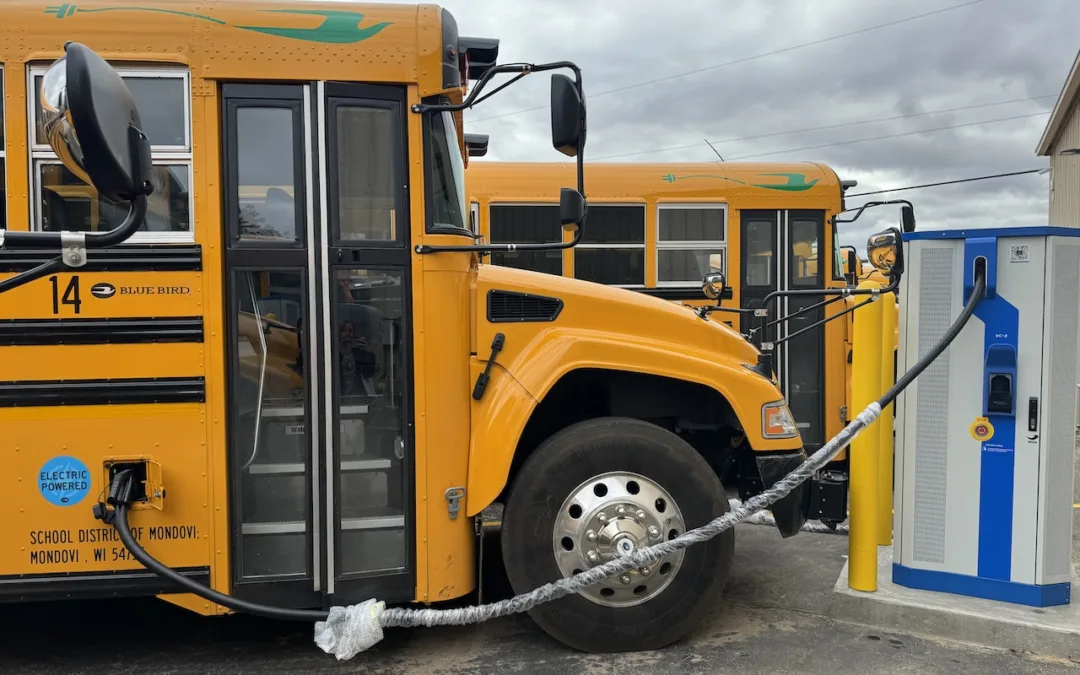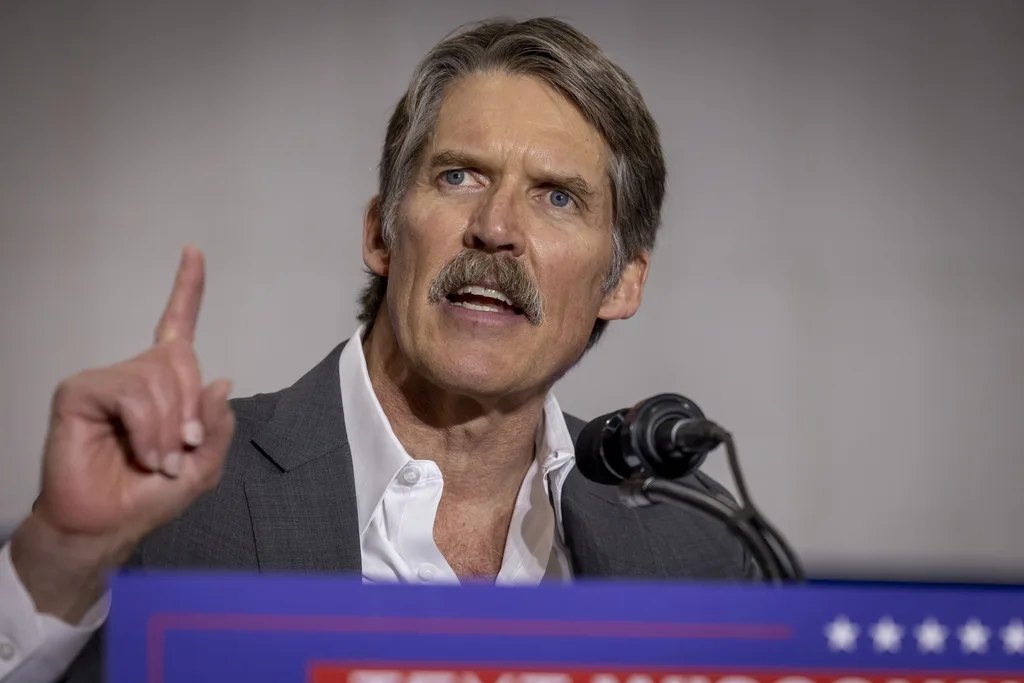
#image_title
#image_title
As the Legislature stays on break and Congressional Republicans go on vacation, people are calling for help and are tired of being ignored.
Republicans taking part in their party’s national convention are likely to agree with the speakers throughout the virtual event who claim President Donald Trump presided over a rosy economy before the pandemic and will do so again after the coronavirus outbreak eases.
But many Wisconsin entrepreneurs, service sector workers, and others who were already struggling pre-pandemic with an economy that mainly benefited those already well-off say the reality is sharply different and more gloomy. Now, with congressional Republicans choosing a vacation instead of a new aid package, many in the state say their savings and their optimism are gone.
Just ask Jackson Kysar. When he decided to open a restaurant four years ago, he envisioned creating a homey place where customers enjoyed quality food and a pleasant ambiance.
Kysar did just that. The Burger Barn eatery he started in the town of Marengo, just south of Ashland, quickly gained a steady clientele who came not just for the restaurant’s namesake food but for other menu items, and to catch up on the news and gossip of the day. Two years later Kysar relocated to Ashland.
Then, in March, the coronavirus pandemic surfaced in Wisconsin, prompting the state Department of Health Services to close schools and most businesses, including restaurants like the Burger Barn, with the issuance of the safer-at-home order to slow the spread of COVID-19.
Since Kysar reopened his business following the state Supreme Court’s overturning the extension of safer-at-home order in May, business has remained slow as worries about the virus have kept people away.
So when Kysar got another job offer from a construction company recently, he decided to take it and close the Burger Barn, he said, in large part because of uncertainties about when — or whether — more customers might return. The restaurant will close after Saturday.
“The stress of this, it’s been hard,” Kysar said of operating his eatery while the pandemic continues and cases of the virus continue to surface. “We are in survival mode every day. It took a toll. There is a lot of uncertainty about the future, and when this virus may get under control. I looked at that and decided to do what I feel is best for my family.”
Across Wisconsin and the rest of the country, Kysar and others are dealing with the harsh economic realities of a pandemic that continues to adversely impact their bottom lines and job prospects. Businesses and other operations have resumed, and while some companies say they are bouncing back, many others say they continue to struggle financially.
Those struggles were alleviated somewhat when Congress granted its first round of the Coronavirus Aid, Relief, and Economic Security, or CARES, Act funding, which provided the $150 billion Coronavirus Relief Fund to governments across the country to deal with problems caused by the pandemic.
Government expenditures ranged from unemployment insurance payments, to expenditures for personal protective equipment, to Paycheck Protection Program (PPP) dollars that helped business owners pay their employees. Individuals benefited from direct aid payments of $1,200 or more.
As the pandemic continued, the Democrat-led House in May passed a second round of pandemic-related funding called the $3 trillion HEROES Act. The package includes up to $6,000 per family in direct aid, increased pay for essential workers, a resumption of the higher level of unemployment compensation, and help for beleaguered state and local governments.
But the Republican-controlled Senate refused to vote on that or any proposal before adjourning earlier this month, in part because of opposition to continuing the now-expired $600 weekly unemployment payments to qualified applicants.
Democratic Presidential candidate Joe Biden has called on the Senate to approve the HEROES Act, saying it is necessary to continue an economic recovery during the pandemic.
The Senate’s inaction on relief funding has left many without the assistance they need to pay bills as the economy continues to recover from the pandemic’s effects. People in communities across Wisconsin told UpNorthNews they have been getting by with the assistance of CARES Act dollars. They said they worry without another influx of aid, they may be unable to pay expenses.
Joshua Glass, a 33-year-old former store clerk with the Willy Street Co-op in Madison, said the pandemic has been hard on his entire family. He took a leave of absence from Willy Street in April to minimize the risk of passing coronavirus on to his 93-year-old grandmother, whom he is a caretaker for.
But like almost 100,000 other Wisconsinites, Glass is stuck in the persistent unemployment insurance backlog. The state’s unemployment compensation system was never equipped for a level of joblessness that dwarfed all previous recessions. The state system relies on a computer language developed in the 1960s as Republican-led legislatures applied a decade of budget pressure.
Overworked adjudicators are still behind on making rulings on whether health-related leaves of absence like Glass’ qualify for unemployment insurance. As a result, he has gone without steady income for nearly five months. He is owed about $13,000 from unemployment, he said.
Glass began cleaning Airbnb units when his savings dwindled to about $500 and he has been able to pay his bills that way. His father also has health issues, so Glass has helped sustain him as well.
“I’ve blown through my savings,” Glass said. “I have nothing I had at the beginning of this in my name, and I’m basically rebuilding my life right now because I had to finance everything for my entire family.”
As negotiations for a new coronavirus relief bill have broken down in Congress, similar inaction can be seen in state government as Wisconsin’s top Republicans have refused to convene the Legislature a single time in four months.
Glass said he is “disgusted” with all facets of government, including Gov. Tony Evers, who has publicly signaled he sees little use in trying to work with Republican leaders because they thwart his actions at every turn.
Wisconsin has burned through most of its $1.9 billion in federal relief funding, according to a tracker from the state Department of Administration. More than $1.7 billion has been disbursed into programs such as farm relief, rent assistance, and hospital aid, but the money is running out quickly.
Some of those vital programs are already out of money, such as the $25 million Wisconsin Rental Assistance Program, which doled money out to renters in every county, according to the DOA dashboard.
Earlier this month, an analysis of the US Census weekly Household Pulse Survey estimated 200,000 Wisconsin households were at risk of eviction. No more rent assistance is currently on the way from either the Legislature or Congress.
“They still get paid; we still suffer,” Glass said of politicians who have abdicated their duties. “And we’re expected just to go out, go back to work, quit being f–king lazy. I just don’t abide by that. I’m done working for a system that doesn’t work for me.”
‘We need help’
Even as 1.8 million new jobs were added nationally in July, a sign of limited economic bounceback, it pales in comparison to the 58 million total initial jobless claims since the pandemic began, and many people — especially those working in the service or travel sectors — said they continue to struggle to find work, or jobs that pay enough to keep pace with living expenses.
La’Ron Glover said he lost his job as a cook at a Milwaukee restaurant when safer-at-home was implemented. The restaurant has reopened, he said, but has only called back about half of its workers, leaving him and others without ample work.
Glover said he found a part-time job last month as a maintenance worker, but that isn’t enough to pay his bills. He continues to search for other work, he said, but jobs in the service sector are hard to come by as many restaurants, hotels, and other businesses have not resumed fully as the pandemic continues.
Without an extension of unemployment benefits or some other type of aid, Glover said he and many others like him won’t be able to afford to keep a roof over their head and put food on their table.
“I’m working hard. I’m doing what I can,” Glover said. “There are some jobs out there, but many of them don’t pay enough to keep up with the cost of living. There are a lot of people out here like me, just trying to scrape by. And we need help to do it.”
Many businesses, notably those in the retail and travel sectors, are in need of further financial assistance, said Blake Opal-Wahoske, executive director of the Wausau River District, part of the Main Street program. Overall, businesses are doing better in downtown Wausau than they were in May, he said, but many continue to see far fewer customers than prior to the pandemic.
Business owners are working hard to change operations to comply with COVID-19-related safety standards, he said, and many have adopted new models to adapt to the pandemic, such as offering more products online.
But those options are limited in some situations, he said, and many businesses continue to struggle.
“Our businesses are cautiously optimistic,” he said. “But we need the economy to pick up.”
Unlike Kysar, Jon Seybold, co-owner of Houligans Steak & Seafood Pub in downtown Eau Claire, has been able to keep the restaurant open. But the number of customers there since he reopened on June 2 is only about half of what it was before the pandemic, he said, and he hasn’t been able to hire back all of his staff.
On Wednesday night only a handful of the restaurant’s tables, spaced to conform with county-issued COVID-19 health guidelines, were occupied.
“Slow is an understatement,” Seybold said Thursday when asked how business has been. “Our volume has not increased during these past three months.”
Some restaurants and taverns, especially those in rural areas without a public health order in place limiting capacity, seem to be doing relatively well, Seybold said. But many are struggling to attract customers worried about contracting COVID-19, he said, noting he has heard of a handful of them that have closed.
Houligans received PPP funding, Seybold said, helping him to pay employees. He said he is hopeful Congress will approve another aid package, and for a return to more normal business levels once COVID-19 cases become less common and a vaccine is approved.
“A second round of PPP would be key to allowing a lot of businesses to stay open,” Seybold said. “Without that, I think we could be looking at a lot of shutdowns.”
Jonathan Sadowski contributed to this report.
Politics

Plugged in: How one Wisconsin school bus driver likes his new electric bus
Electric school buses are gradually being rolled out across the state. They’re still big and yellow, but they’re not loud and don’t smell like...

What’s the difference between Eric Hovde and Sen. Tammy Baldwin on the issues?
The Democratic incumbent will point to specific accomplishments while the Republican challenger will outline general concerns he would address....
Local News

Stop and smell these native Wisconsin flowers this Earth Day
Spring has sprung — and here in Wisconsin, the signs are everywhere! From warmer weather and longer days to birds returning to your backyard trees....

Your guide to the 2024 Blue Ox Music Festival in Eau Claire
Eau Claire and art go hand in hand. The city is home to a multitude of sculptures, murals, and music events — including several annual showcases,...


